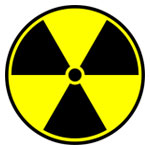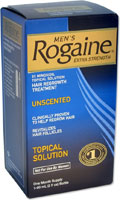Dr. Rassman,
I enjoy reading your blog, and nearly always agree with you, but I do feel you are a bit to pessimistic about ketoconazole. In another response to another member you dismissed of a Japanese, justifiably I suppose, because of the small sample size. (Have you seen the pictures of the impressive regrowth seen in three of the six patients? They shows an obvious reversal of AGA.)
What about this controlled study: “Comparative efficacy of various treatment regimens for androgenetic alopecia in men”
In this study men were divided into four groups: “Group I (30 patients) was administered oral finasteride, Group II (36 patients) was given a combination of finasteride and topical minoxidil, Group III (24 patients) applied minoxidil alone and Group IV (10 patients) was administered finasteride with topical ketoconazole. Treatment efficacy was assessed on the basis of patient and physician assessment scores and global photographic review during the study period of one year. At the end of one year, hair growth was observed in all the groups with best results recorded with a combination of finasteride and minoxidil (Group II) followed by groups IV, I and III. Subjects receiving finasteride alone or in combination with minoxidil or ketoconazole showed statistically significant improvement (p<0.05) over minoxidil only recipients. No signifcant side-effects related to the drugs were observed. In conclusion, it is inferred that the therapeutic efficacy is enhanced by combining the two drugs acting on different aetiological aspects of AGA.”
I don’t believe this has been mentioned on your blog before, and the results are exactly as most men would expect them to be:
Finasteride + Minoxidil > Finasteride + Ketoconazole > Finasteride Alone > Minoxidil Alone after one year.
I’m sure, like every study, this one also has it’s flaws, but together with all the other research — from Piérard-Franchimont C (1998) to Rajput RJ. (2010) — I’d say that the evidence for the efficacy of ketoconazole in AGA is highly suggestive. It’s certainly much stronger than for the majority of the things men try outside of finasteride/dutasteride and minoxidil.
And we know that all anazoles are somewhat antiandrogenic, but only ketoconazole will compete for the AR, and is used in androgen modulated prostate cancer.
How can you be so pessimistic about it in light of the totality of the evidence? Do you believe it to be dangerous?
 I am not pessimistic about ketoconazole. Our job on this site is to educate you, the reader, on the realities of such claims and treatments and warn you if there is danger in using such “stuff”. While I don’t see ketoconazole (better known as Nizoral) as dangerous, it has yet to be proven to my satisfaction that it’s a treatment for hair loss. I’ve always maintained that Nizoral is a good shampoo for treating dandruff and fungal infections.
I am not pessimistic about ketoconazole. Our job on this site is to educate you, the reader, on the realities of such claims and treatments and warn you if there is danger in using such “stuff”. While I don’t see ketoconazole (better known as Nizoral) as dangerous, it has yet to be proven to my satisfaction that it’s a treatment for hair loss. I’ve always maintained that Nizoral is a good shampoo for treating dandruff and fungal infections.
What I have always maintained is that nothing stops a genetic trait. There are drugs that slow it down and there may be other remedies that also work, but my mantra has always been “buyer beware”. The small study you referenced is indeed suggestive of positive benefits, and if the readers out there want to try it, I think that is their choice to make. But keep in mind that while the 1% ketoconazole is available as an over-the-counter shampoo, 2% ketoconazole (as used in that small study) is a prescription medication and as such, you need a physician to oversee the treatment. Side effects include burning and itching sensations.
Tags: ketoconazole, nizoral, hairloss, hair loss, treatment

 Unless your shampoo was made in close proximity to the Fukushima nuclear plant, I think you are overreacting and contributing to the hype of unfounded radiation scare. But if you are scared, there is a simple solution: Don’t use it. Does the bottle have a manufactured date on it? When did you purchase it? That might help set your mind at ease.
Unless your shampoo was made in close proximity to the Fukushima nuclear plant, I think you are overreacting and contributing to the hype of unfounded radiation scare. But if you are scared, there is a simple solution: Don’t use it. Does the bottle have a manufactured date on it? When did you purchase it? That might help set your mind at ease. I am not pessimistic about ketoconazole. Our job on this site is to educate you, the reader, on the realities of such claims and treatments and warn you if there is danger in using such “stuff”. While I don’t see ketoconazole (better known as Nizoral) as dangerous, it has yet to be proven to my satisfaction that it’s a treatment for hair loss. I’ve always maintained that Nizoral is a good shampoo for treating dandruff and fungal infections.
I am not pessimistic about ketoconazole. Our job on this site is to educate you, the reader, on the realities of such claims and treatments and warn you if there is danger in using such “stuff”. While I don’t see ketoconazole (better known as Nizoral) as dangerous, it has yet to be proven to my satisfaction that it’s a treatment for hair loss. I’ve always maintained that Nizoral is a good shampoo for treating dandruff and fungal infections. I just had a 2000+ graft transplant 5 days ago. I trust my doctor implicitly and felt his staff was wonderful and professional.
I just had a 2000+ graft transplant 5 days ago. I trust my doctor implicitly and felt his staff was wonderful and professional. I’m unable to find any listed ingredients on
I’m unable to find any listed ingredients on  Androgenic alopecia is a genetic trait and there are no drugs or potions that will stop it. Propecia and Rogaine seem to slow it down or sometimes reverse it for a few years (it buys you time), but you will continue to lose hair. In other words, there’s no cure. In your case, it is unfortunate that you cannot take the two medications that actually work and are FDA approved to treat hair loss.
Androgenic alopecia is a genetic trait and there are no drugs or potions that will stop it. Propecia and Rogaine seem to slow it down or sometimes reverse it for a few years (it buys you time), but you will continue to lose hair. In other words, there’s no cure. In your case, it is unfortunate that you cannot take the two medications that actually work and are FDA approved to treat hair loss. Thank you for your time. I am a 33 year old male and I have used propecia for some time now and my hair loss has been minimal up until the last few months. I have good reason to believe that my ex-girlfriend has been putting nair in my shampoo, conditioner, or styling paste. It has changed in texture and I am losing it in patches and generally all over my scalp. If this is the case then is the damage permanent or will it grow back? Also, what can I do to repair my hair?
Thank you for your time. I am a 33 year old male and I have used propecia for some time now and my hair loss has been minimal up until the last few months. I have good reason to believe that my ex-girlfriend has been putting nair in my shampoo, conditioner, or styling paste. It has changed in texture and I am losing it in patches and generally all over my scalp. If this is the case then is the damage permanent or will it grow back? Also, what can I do to repair my hair?